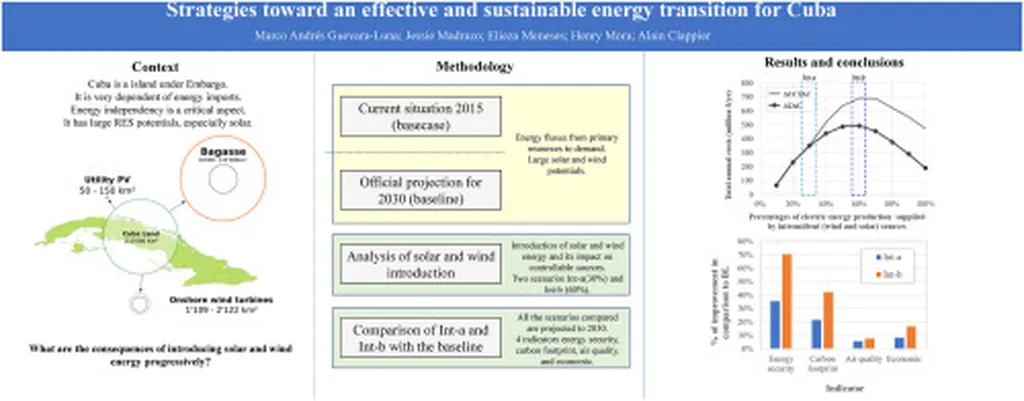In the face of escalating climate change and stringent environmental regulations, the aeronautical sector is grappling with unprecedented challenges. Amidst this backdrop, a groundbreaking study led by Yohana Depestre-Wray from the Cuban Air Navigation Company in La Habana has emerged, offering a beacon of hope and a strategic tool for advancing sustainability in the industry. Published in the esteemed journal ‘Dyna’ (translated to English as ‘Dynamics’), the research presents a novel framework for evaluating environmental performance, with significant implications for the energy sector and beyond.
The study’s objective was to design and apply a methodology for assessing environmental performance at the Cuban Air Navigation Company. Depestre-Wray and her team integrated systematic literature review and documentary analysis, drawing from the ISO 14001 and 14031 standards. The resulting framework was validated using inductive-deductive and systemic approaches, ensuring its robustness and applicability.
The findings revealed high compliance in environmental objectives (92.3%) and waste management (102%), indicating that the Cuban Air Navigation Company is already making strides in these areas. However, the evaluation also highlighted key areas for improvement, such as electromobility strategies (70% compliance) and the environmental training plan (83.6% compliance). These insights not only enable monitoring of environmental practices to ensure regulatory compliance but also serve as a strategic tool for driving continuous management improvement.
“The resulting framework not only enables monitoring environmental practices to ensure regulatory compliance but also serves as a strategic tool for advancing sustainability and driving continuous management improvement,” Depestre-Wray emphasized.
The implications of this research are far-reaching, particularly for the energy sector. As the world transitions towards a low-carbon economy, the need for robust environmental performance evaluation frameworks becomes increasingly critical. This study provides a blueprint for other organizations to follow, helping them to navigate the complex landscape of environmental regulations and mitigate their environmental impact.
Moreover, the framework’s focus on continuous improvement and sustainability aligns with the growing demand for corporate social responsibility and environmental stewardship. By adopting this methodology, companies can enhance their reputation, reduce operational risks, and unlock new business opportunities in the green economy.
Looking ahead, this research is poised to shape future developments in the field of environmental management. As Depestre-Wray noted, “The framework’s adaptability and comprehensive approach make it a valuable tool for any organization seeking to advance its sustainability agenda.”
In conclusion, the study led by Yohana Depestre-Wray represents a significant milestone in the quest for environmental sustainability in the aeronautical sector. By providing a robust and adaptable framework for environmental performance evaluation, it offers a strategic tool for driving continuous improvement and mitigating environmental impact. As the world grapples with the challenges of climate change, this research serves as a beacon of hope and a roadmap for a more sustainable future.

